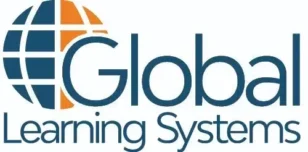Diversity and inclusion training is essential to today’s modern day workplace. More than just policies, procedures and headcounts, diversity and inclusion (D&I) – also referred to as diversity, equity and inclusion (DEI) – allows employers to separate themselves from their competitors. By bringing a variety of voices and ideas to the table, organizations show respect for the unique needs, capabilities and potential of ALL of their team members. Creating an environment of trust and respect leads to a more productive and happier workplace.
What is Diversity and Inclusion in a Work Setting?
A diverse and inclusive workplace is a one in which everyone feels equally involved and supported in all aspects of their job – regardless of who they are or their role within the company. “All aspects” refers to recruiting, management, executive leadership and more. These concepts are taught in diversity and inclusion training programs.
Ask yourself these questions: Does your organization have women in the workplace but with only 20% in managerial positions? Do you hire people of color but are they all in the same department? Looking over the total landscape of your organization, are roles and practices aligned to make everyone feel equally involved and supported?
Diversity vs. Inclusion
Diversity and inclusion are two related concepts, but they are not interchangeable. Diversity is about representation or the make-up of an organization. Inclusion is about how well the contributions, presence and perspectives of different groups of people are valued and integrated into an organization. A company is diverse but not inclusive when it boasts a representation of many different genders, races, nationalities and sexual orientations but only values or gives authority to the perspectives of a certain group or groups.
Organizations have to go beyond “tokenism” diversity – that is, hiring a diverse workforce but not including them. An inclusive culture embraces the talents, opinions and abilities of all employees by involving, developing, trusting and empowering them.
Why is Diversity and Inclusion So Important?
Inclusion in the workplace is one of the key factors in boosting employee retention. Statistics show that diverse and inclusive organizations benefit from higher revenue growth, greater readiness and a capacity to innovate. By valuing diversity, companies increase their ability to recruit a more well-rounded talent pool as well as retain employees at a higher rate.
All employees want to feel valued. When they do not feel that their ideas are considered, they will eventually leave, creating a gap in the workforce along with additional costs to back fill their positions. Studies have shown that employers with solid diversity and inclusion training, plans and practices have employees who look forward to going to work. They take pride in their work and are more likely to stay with the organization for the long haul.
Effective Diversity, Equity and Inclusion Training
A good D&I training program will increase employee’s awareness of cultural, racial and religious differences within the workplace. At the same time, it will deliver information on how a person can change their behaviors to be more inclusive. Diversity and inclusion training creates a more productive and harmonious work environment by encouraging teamwork and aligning the organization to avoid civil rights violations.
Global Learning Systems provides DEI training that covers topics such as cultural competency, inclusivity, bias awareness and anti-discrimination law, as well as how to deal with microagressions, unconscious biases and more. It’s all part of GLS’ comprehensive workplace ethics, compliance and employment law training to increase awareness and reduce risk and liability for your company.
Reach out to GLS today to find out how awareness training can help your organization prioritize diversity and create a more inclusive culture.



